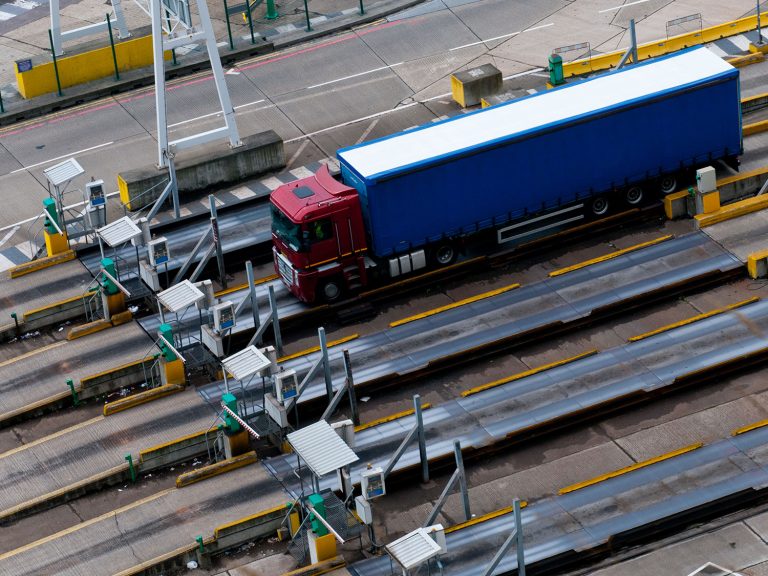
Date:
Brexit and pandemic challenged road freight supply chain with Europe
The twin impacts of Brexit and the pandemic had a negative effect on road freight in the first quarter of 2021, with freight tonnage and vehicle movements down significantly, marked by lack of capacity, driver shortages and other disruptions. January was the largest month-on-month drop in imports and exports since records began, which was ultimately driven by the Brexit deadline at the very end of 2020.
Freight levels were lower across all four quarters of 2020 when compared to 2019 due to the impact of the pandemic, although the gap reduced in the fourth quarter, but it then fell again significantly YoY in the first quarter of 2021.
Businesses efforts to stockpile ahead of the Brexit deadline in the fourth quarter of 2020, contributed to the quieter first quarter in 2021, which was weakened further by concerns about lorry vehicle movement of ro-ro traffic congestion after the end of the transition period.
Traffic remains at lower levels than expected pre-pandemic, though the fall in imports and exports in 2021 are consistent with the unwinding of inventories seen in January and February, that had been stock-piled at the end of last year.
Q1 2021
The first quarter of this year saw the effects of Brexit in full swing, with British exports to the EU falling by 40% year-on-year, according to the office for National Statistics (ONS), while imports from the Continent to the UK were nearly 29% lower, down massively from the final quarter of 2020 when ‘over’ stocking by UK importers and the early despatch of exports in 2019 to avoid customs protocols and anticipated delays, saw massive demand for European road freight.
New administrative requirements, customs at the border, restrictive COVID-19 rules and traffic jams at the border (though not to the levels publicised or anticipated) caused many hauliers to abandon services to and from the UK and lower transport availability translated into higher rates. Despite lower demand supply of overland transport shrank by an even greater amount.
Rates for transport into and out of Europe increased massively in Q1, with the doubling of some transport costs, because of the lack of trucks in the UK, as a result of resistance by transport companies to accept export freight from the UK. They preferred to run empty back to the continent, to avoid customs delays in Europe gateways, despite demand (albeit low) outstripping supply of vehicles.
The market began to normalise in March and movements increased nearer to ‘normal’ levels but still with increased costs year on year for transport.

Q2 2021
By Q2, customs protocols and processes stabilised at EU/UK borders (with the exception of Northern Ireland) with cargo moving seamlessly, but with transport costs now settled significantly higher than 2019, around 25% on most popular routes.
In addition costs increased due to need for customs clearances adding an average of £100 to a movement for both the export and import customs entry and related processes into and out of Europe.
Lack of drivers in the UK estimated to be between 50-100k due to the mass departure of EU lorry drivers from the UK (estimated to be around 35% of the UK driver labour pool) due to Brexit and the pandemic. This in itself created a lack of supply and price inflation, due to simple supply versus demand dynamics.
European road freight spot prices jumped by more than 8% in May to a three-year high as available capacity plummeted to a three-year low, while the Eurotunnel’s Le Shuttle Freight transported 112,772 trucks, an increase of 25% compared to May 2020. (Traffic for the five months from January to May 2021 was down 5% on 2020). In reality when short supply and demand was decreased the impact on overland transport costs was significantly higher, and remains so, against this statistic.
Metro supply market leading customs solutions through our bespoke in-house CuDoS platform and within the organisation we offer time critical and reliable established services throughout Europe.
For further information or any questions on the continually developing customs and transport needs with the BLOC please contact Chris Carlile or Grant Liddell to arrange an appointment and discuss the future trends and solutions that Metro offer.
